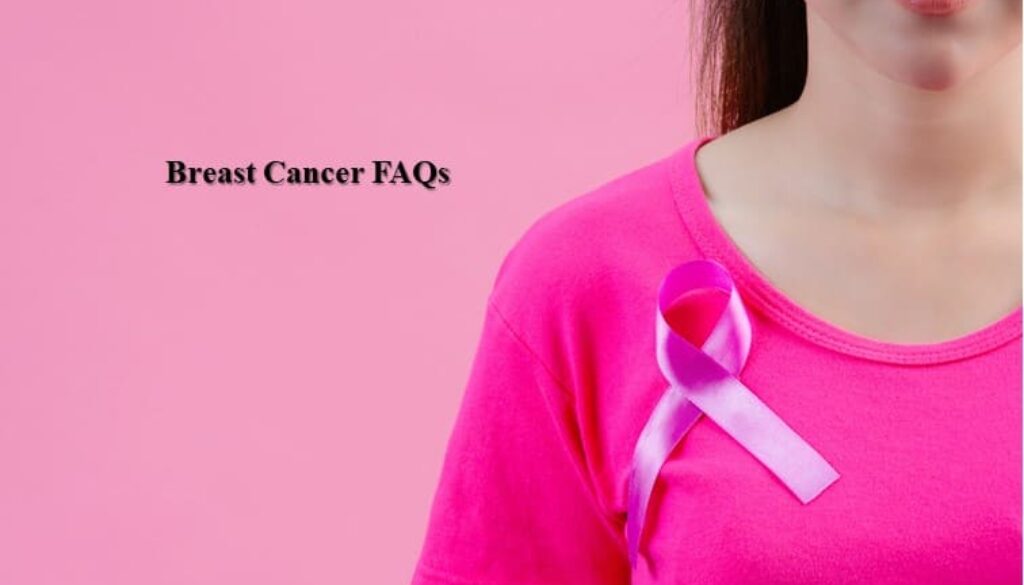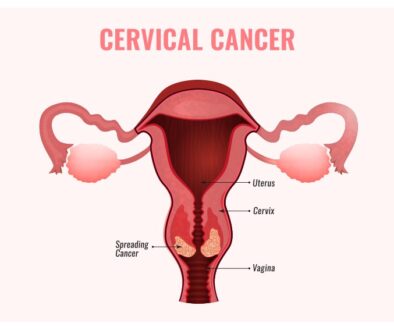Breast Cancer FAQs
Breast Cancer FAQs (Frequently Asked Questions)
How long does breast cancer take to spread from stage 1 to the next stage?
When it comes to breast cancer, the most important factor for your doctor to consider when determining how quickly (or if at all) your disease may expand is the type of tumor you have. Distinct kinds of breast cancer behave differently, and therefore every cancer – and every individual – is unique, it’s difficult to predict how rapidly breast cancer will grow and expand. Nonetheless, physicians acknowledge that some kinds of breast cancer are more dangerous and develop quickly, while others spread more slowly.
The growth of breast cancer can be determined by the following factors:
- The subtype of breast cancer – Triple-negative and HER2-positive tumors develop more quickly, but hormone receptor-positive breast cancers grow over time.
Stage
Breast cancer is classified into four stages, ranging from 0 to IV. Stage 0 signifies cancer has stayed within the milk ducts or lobules of the breast and is non-aggressive. Aggressive breast cancer occurs when cancer cells break through and develop into the breast tissue, with the ability to expand to other parts of the body. Stage IV cancer indicates that it has spread to other organs. Cancer that has migrated to other places of the body has a higher chance of spreading further.
The grade
Once you’re identified with breast cancer, your doctor will assign a grade to your cancer depending on how similar your cancer cells are to normal cells. A higher grade indicates a more dangerous tumor with a greater potential of growing and spreading to other parts of your body.
Age
When compared to older ladies, younger girls are more prone to develop aggressive forms of breast cancer. Hormone-driven breast cancers are more common in older women, and they tend to be slowly progressing, but not necessarily so.
Mutations in the DNA
Breast cancer is more likely to run in your family if it is genetic. Some females with genetic variations (BRCA1 and BRCA2 genes) are at a greater risk of being diagnosed with breast cancer at a relatively young age, which is associated with more deadly types of the disease.
Depending on your breast cancer subtype, stage, and personal circumstances, your cancer team will assess how probable or fast your breast cancer may expand.
Breast Cancer FAQs: How long one can live with stage 2 breast cancer?
It’s crucial to note right away that survival rates aren’t a guarantee of how long you’ll live after being diagnosed with breast cancer and receiving medical treatment. Rather, rates represent the estimated number of people who will survive for a certain length of time. As per the American Cancer Society, females who have completed therapy for stage 2 breast cancer have a five-year life expectancy of 93 percent. Therapies have substantially improved in that time, so if you are freshly diagnosed, you may have a better chance of surviving for a prolonged period of time.
Can breast cancer be cured fully?
Breast cancer death rates have been steadily dropping since 1990, thanks to greater testing and knowledge, as well as breakthroughs in treatments. It’s imperative to remember that breast cancer is a highly curable disease, and if breast cancer screening often allows for the early detection of cancers, then medication has the highest success rate.
Surgical treatments are also being developed, and innovations in the surgical methods are being examined to better both the complete resection of breast malignancies and the reconstruction of the breast after tumor removal.
Is it possible to cure 4th-stage breast cancer?
Breast cancer at stage four, often known as metastatic breast cancer, has migrated beyond its original site to different tissues and organs throughout the body. Stage 4 breast cancer has a 5-year survival rate of 27.4percent for female patients diagnosed between 2009 and 2015. There is currently no permanent cure for stage 4 breast cancer. It is, however, treatable and manageable.
What are the best treatments for early-stage breast cancer?
- Breast Cancer Surgery – The conventional treatment for this stage is surgery. Because the tumor is minor, you may have a lumpectomy, in which only the tumor and some surrounding tissues are eliminated. Some women undergo a mastectomy, which involves the removal of the entire breast. In either situation, one or more lymph nodes will almost certainly be removed by the surgeon. You may choose to get breast repair (reconstruction) surgery after a mastectomy.
- Chemotherapy – Chemotherapy following surgery can reduce the chances of cancer recurrence. Cancer cells are targeted by the medications. Chemotherapy is more likely to be given to women who have had larger tumors eliminated.
- Radiation therapy – Radiation therapy has the ability to eliminate cancer cells that were previously undetected. It’s typically given following a lumpectomy. Women who have a mastectomy for stage I cancer may also require radiotherapy.
For how many years can a breast cancer patient live?
The 5- year survival rate is the most frequently mentioned figure. It is the % of cancer patients who live for at least five years after being detected. Many of these patients survive far longer, and others die from factors other than breast cancer. These figures may fluctuate due to frequent changes in therapies.
Has anyone had a recurrence of breast cancer after stage 1?
Recurrence is a possibility for everybody who has had breast cancer even after stage 1. Most of the patients who are diagnosed with breast cancer, on the other hand, will never have a return. Talk to your oncologist about the chances of recurrence of breast cancer and what you should do to reduce your chances.
How is life after surviving breast cancer?
Overcoming breast cancer may result in a beneficial shift for some individuals. You can promote healthy dietary and lifestyle adjustments, such as working out more and consuming a healthy balanced diet. Family and friends may be inspired to pursue a better lifestyle as a result of your activities. Many breast cancer survivors experience spiritual or psychological growth as a result of their treatment.
Can stage 3rd breast cancer be cured?
This is one of the most common breast cancer FAQs
Stage 3 breast cancer is more difficult to treat than stage 2 or stage one breast cancer as it has migrated outside the breast, albeit this depends on a few criteria. Stage 3 breast cancer can be cured with vigorous treatment; nevertheless, the likelihood of the tumor returning after treatment is considerable.
One of the most frequently asked questions about breast cancer is this: can you die from stage 1 breast cancer?
If you follow the prescribed therapies, you have less than one percent to 5% probability of dying from Stage I breast cancer within 5 years after diagnosis.
Do you know anyone who never had a breast cancer recurrence ever again?
The risk of recurrence of breast cancer is greatest in the first two years of diagnosis. The likelihood of return steadily diminishes over time. Many cancer survivors mark their 5-year anniversary of being cancer-free because it is well acknowledged that the large proportion of patients who have not had a return by that time have a very low risk of recurrence.
Can a person have breast cancer for two years and not know it?
It is possible in some cases if you develop late symptoms of breast cancer or if you have ignored the early symptoms. Immediately consult your gynaec oncologist if you suspect something abnormal in your breasts.
Bottom Line
If you have any other concerns regarding breast cancer including breast self-examination, clinical breast examination, breast cancer screening – diagnosis, and treatment, then meet me or talk to me directly at this number: +91-9908216809
Breast cancer FAQs: If you have any more frequently asked questions about breast cancer – write your question in the comment sections below – we will get back to you!




